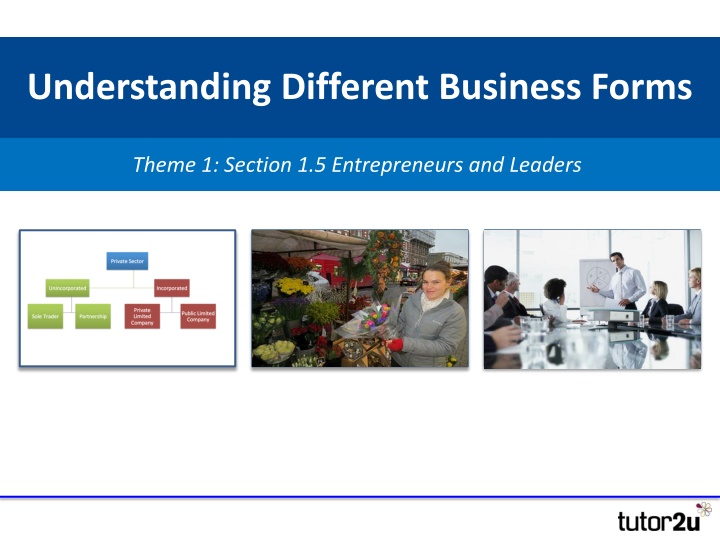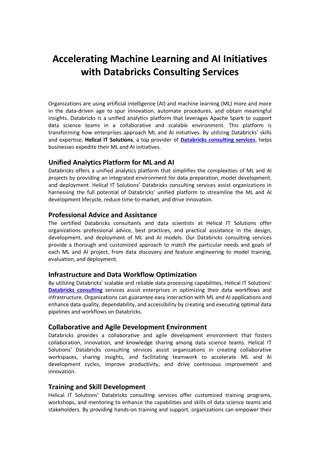eHealthCare Initiatives Overview
Providing a glimpse into Argusoft's eHealth platforms, such as Teleconsultation and TeleOphthalmology, which cater to rural populations in India. The platforms facilitate remote consultations and management of various healthcare programs, ensuring access to quality care. Through innovative technologies, Argusoft is revolutionizing healthcare delivery, especially in remote areas, enhancing the lives of millions.
Uploaded on Apr 13, 2025 | 0 Views
Download Presentation

Please find below an Image/Link to download the presentation.
The content on the website is provided AS IS for your information and personal use only. It may not be sold, licensed, or shared on other websites without obtaining consent from the author.If you encounter any issues during the download, it is possible that the publisher has removed the file from their server.
You are allowed to download the files provided on this website for personal or commercial use, subject to the condition that they are used lawfully. All files are the property of their respective owners.
The content on the website is provided AS IS for your information and personal use only. It may not be sold, licensed, or shared on other websites without obtaining consent from the author.
E N D
Presentation Transcript
Understanding Different Business Forms Theme 1: Section 1.5 Entrepreneurs and Leaders
What you need to know Unincorporated and incorporated businesses (sole traders & limited companies) Importance of limited liability Private & public sector Public limited companies Other categories of business Franchising Social enterprise Lifestyle businesses
Business Forms Links Closely With Organisational Structure Business Objectives Shares & Shareholders Stakeholders Business Forms
Business Forms Mapped! Private Sector Unincorporated Incorporated Private Limited Company Public Limited Company Sole Trader Partnership
Unincorporated v Incorporated Unincorporated The owner is the business - no legal difference Owner has unlimited liability for business actions (including debts) Most unincorporated businesses operate as sole traders Incorporated Legal difference between the business (company) and the owners Owners (shareholders) have limited liability Most incorporated businesses operate as private limited companies
Unlimited Liability A characteristic of unincorporated businesses Business owner/s personally responsible for the debts and liability of the business If the unincorporated business fails, the owners are liable for the amounts owed
Sole Trader The most common type of business structure A sole trader is just an individual owning the business on his/her own Remember that a sole trader can also employ people but those employees don t share in the ownership of the business The sole trader owns all the business assets personally and is personally responsible for the business debts. A sole trader has unlimited liability
Benefits and Drawbacks of Operating as a Sole Trader Advantages Quick & easy to set up business can always be transferred to a limited company once launched Disadvantages Full personal liability unlimited liability Harder to raise finance sole traders often have limited funds of their own and security against which to raise loans Simple to run owner has complete control over decision- making Minimal paperwork The business is the owner the business suffers if the owner becomes ill, loses interest etc Easy to close / shut down Can pay a higher tax rate than a company
Partnership Where a business is started and owned by more than one person The legal partnership agreement sets out how the partnership is run, covering areas such as: How profits are to be shared What the partners have to invest into the business How decisions are taken What happens if a partner wants to leave or dies The partners between them own all the business assets and owe all business liabilities Partners, therefore, also have unlimited liability
Benefits and Drawbacks of Operating in a Partnership Benefits Quite simple certainly the simplest way for two or more people to form a business together Drawbacks Full personal liability unlimited liability A poor decision by one partner damages the interests of the other partners Minimal paperwork once Partnership agreement set up Business benefits from the expertise and efforts of more than one owner Harder to raise finance than a company Partners can provide specialist skills Partners are bound to honour decisions of others Greater potential to raise finance partners each provide the investment Complicated to sell or close
Importance of Limited Liability An important protection for shareholders in a company Shareholders can only lose the value of their investment However limited liability does not protect against: Wrongful or fraudulent trading, or When personal guarantees have been given by directors
Incorporated Business is a Company A company is a legal entity. The owners of a company are shareholders
Limited Company (1) Limited companies are separate legal entities to the founders. A legal entity can own things itself (assets), can sue and be sued Companies are owned by their shareholders and run by directors. The shareholders appoint the directors (often the same people) who run the company in the interests of the shareholders Shareholders own a share of the company, but they do not own the assets of the company and they are not liable for the debts of the company
Limited Company (2) The company owns the assets and pays the debts. If the company becomes insolvent (i.e. it cannot pay its debts), then the company is closed. Shareholders are not liable for any debts owed by the company that cannot be settled. That is the importance of limited liability By far the most common form is a private limited company. Private means that the shares of the company are not traded publicly on a stock exchange By contrast, a public limited company ( plc after its name) tends to have a larger value of share capital invested and its shares may be traded publicly.
Benefits and Drawbacks of Operating as Limited Company Advantages Limited liability protects the shareholders (the big advantage) Easier to raise finance both through the sale of shares and also easier to raise debt Stable form of structure business continues to exist even when shareholders change Disadvantages Greater admin costs Public disclosure of company information Directors legal duties
Public Limited Companies A more specialist type of limited company Shares may be quoted and traded on a public stock market (but don t have to be) When traded on a stock market, public companies have substantially more shareholders Subject to greater regulation in terms of public disclosure of financial and other information
Public Sector Organisations Public Sector Companies / Businesses A relatively small number of companies are owned or controlled by the Government E.g. RBS (nationalised), Network Rail Public Sector Organisations There are many more organisations that provide goods and services which are owned and operated by public bodies These are funded by central & local government, but may still levy charges for some services E.g. NHS, Highways Agency, TeachFirst
Social Enterprises: Not for Profit Organisations Not-for-profit organisations are businesses that trade in order to benefit the community. These business have social aims as well as trying to make money Examples of social aims are job creation and training, providing community services and fair trade with developing countries There are many different types of social enterprise, including community development trusts, housing associations, worker-owned co-operatives and even sports clubs
Franchising Franchisor grants a licence (franchise) to another business (franchisee) to allow it trade using the brand / business format
Advantages of Operating as a Franchise Still your own business Tested & developed format & brand Advice, support, training Easier to raise finance No industry expertise required Buying power of franchisor Lower risk method of market entry + lower failure rate
Disadvantages for the Franchisee Not cheap! Initial fees + royalties & commission Restrictions on actions, including selling Problems selling business on Long-term rewards for hard work c/w going it alone? What happens if franchisor fails?
Advantages for Franchisor A classic growth strategy for a proven service business format Enables rapid geographical growth for a minimum investment Still have an option to open solus branches Cream-off the above normal profits
Lifestyle Businesses Not a form of business as such Used to describe a business that generates a living for the owners but no more Business objectives tend to be less important provided the business allows the owners to maintain their lifestyle























